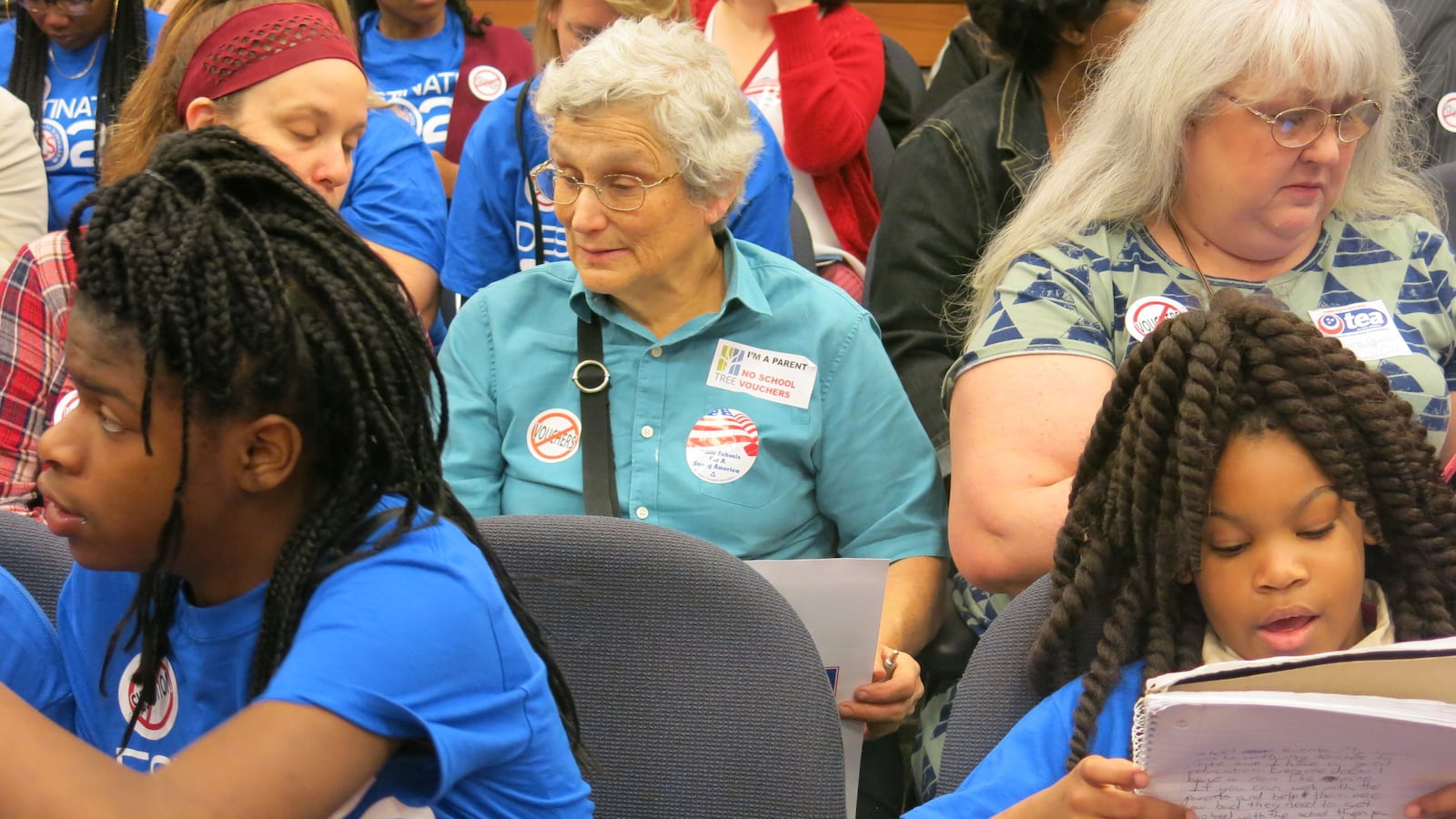A new poll by the pro-voucher group American Federation for Children is meant to illustrate Americans’ support for school choice. But it also offers some insight about how advocates choose how to talk about hot-button education issues.
What caught our eye was something buried in the polling memo: Voters said they narrowly opposed school vouchers, 47 to 49 percent, even though similar approaches like “education saving accounts” and “scholarship tax credits” garnered much more support.
These findings help explain why advocates of programs that allow families to use public money to pay private school tuition often avoid the word “voucher.” The website of National School Week, for instance, doesn’t feature the term, referring instead to “opportunity scholarships.” (Notably, Education Secretary Betsy DeVos, who led AFC before joining the cabinet, herself has been less shy about saying “vouchers.)
The debate on how to brand “school choice” — or to critics, “privatization” — has been long running, and Republican pollsters have advised advocates to avoid the word “voucher.”
This phenomenon may help explain the national rise of tax credit programs, which function like vouchers but usually go by a different name and have a distinct funding source. It also makes it quite difficult to accurately gauge public opinion on the policy, as small tweaks in how a question is worded can lead to very different results.
The recent AFC poll points to substantial support for “school choice,” with 63 percent of respondents supporting that concept. That’s in response to a question with very favorable wording — defining school choice as giving a parent the ability to “send their child to the public or private school which best serves their needs.”
Still, support for school choice dropped several percentage points from last year. That’s consistent with a poll from August that found support for charter schools was falling, too.
Showing how wording can matter, a 2017 survey from the American Federation of Teachers asked parents their view of “shifting funding away from regular public schools in order to fund charter schools and private school vouchers.” The vast majority were skeptical.
When school vouchers have been put up for a vote, they’ve almost always lost, including in DeVos’s home state of Michigan. Supporters and critics may get another shot this year in Arizona, where the fate of a recently passed voucher program will be on the ballot in November, barring a successful lawsuit by voucher advocates.


